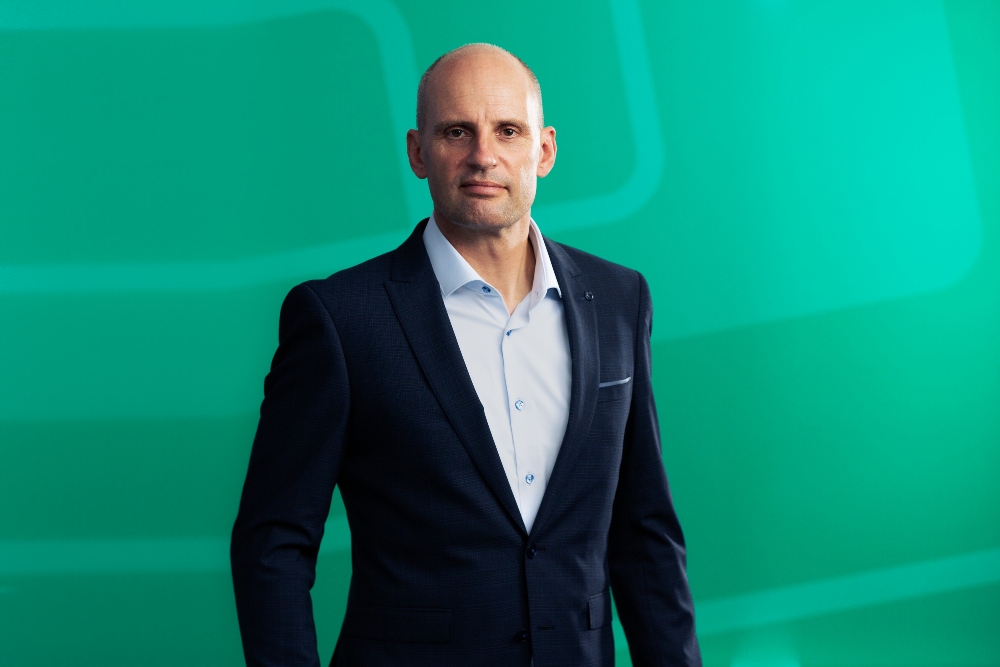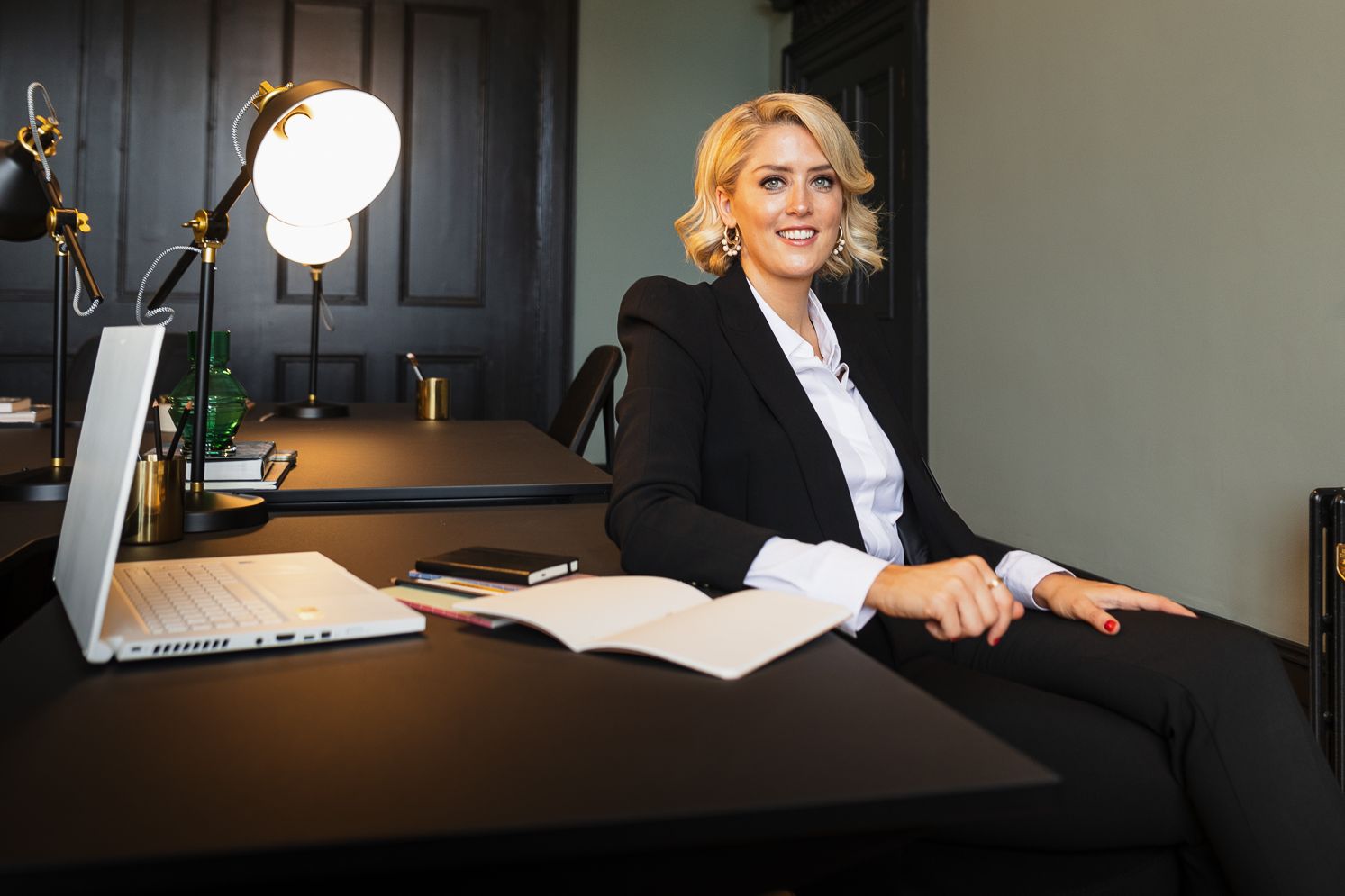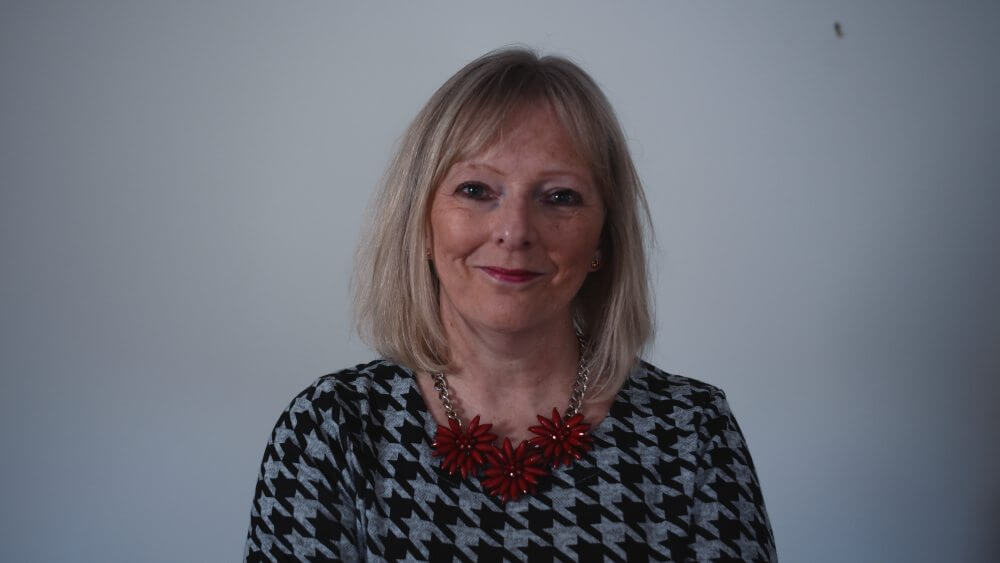John Clancy, managing director of Managed Services at globally scaling Irish IT player Ergo, shares his life and business lessons.
Ergo is the largest privately-owned IT services company in Ireland, headquartered in Dublin, with offices in Cork and Limerick as well as the UK, US, Romania, Colombia and New Zealand.
It excels at the intersection of business and technology with market-leading cloud solutions, managed services and IT resourcing.
“We specialise in helping CIOs navigate and transform their way through the challenges of the corporate technology landscape today”
For nearly 30 years, CIOs and IT leaders have relied on Ergo for a powerful combination of agility and resilience – agility to grow and continually improve; resilience to withstand whatever disruption comes next.
Tell us about your background, what journey did you take to arrive at where you are?
I have been really fortunate to have had a varied career that started with me studying Electrical Engineering in Dublin Institute of Technology, (now Technological University Dublin). This set me up to start a career in the telecoms industry, where I worked for a number of companies, including Esat Telecom, BT Telecom and Global One, as well as vendors including Lucent Technologies and Nortel Telecommunications.
Having built solid expertise in engineering, I decided to pivot into technical design and advanced into managing technical teams, which I really enjoyed. I then had the opportunity to move into sales where I built and managed an Irish public sector business for Vodafone Ireland, whilst successfully completing an MBA at the Irish Management Institute, which was a hugely rewarding experience.
Following my Masters’, I decided to move into the IT services industry, and my current role is with Ireland’s largest indigenous Irish IT solutions provider, Ergo, where I work as Managing Director of the Managed Services business, which is growing at scale. One of the elements I enjoy most about my current role is the opportunity to work with many stakeholders across our ecosystem from my own team at Ergo, to customers across a wide range of sectors, as well as our partners.
“Ergo plans to grow revenues by 300% over the coming years in Ireland and abroad through our European, US and Asia Pacific footprint”
Why are you doing what you are doing? What need are you meeting? What’s your USP?
In my role as managing director of the Managed Services business for Ergo, I sit on the Executive Team so have strategic input into the direction and growth trajectory of the managed services business. While Ergo is one of the few remaining privately-owned indigenous MSPs in Ireland, we are growing rapidly and also internationally, so I oversee teams in multiple geographies beyond Ireland including the UK, US, Romania, Colombia and New Zealand. We specialise in helping CIOs navigate and transform their way through the challenges of the corporate technology landscape today.
This role has given me the opportunity to build an Enterprise Managed Service Business with full 24/7/365 Network Operations Centre & Security Operations Centre. My experience across Telecoms and IT Services has enabled me to identify opportunities for innovation and emerging and complementary technologies, to achieve and drive business outcomes for our clients and business growth for Ergo.
How did you fund and start the business and what are your growth plans?
Ergo was established by John Purdy and his business partner Tim Sheehy in 1993 and over the last 30 years has grown and expanded to deliver a broad range of IT solutions.
The managed services business unit is central to Ergo’s future growth plans as it delivers sustainable long-term client engagements and is a fantastic platform to showcase the depth of our expertise, the quality of our service delivery, as well as the value-add we can bring to clients in a time of rapid disruption.
Ergo has invested heavily in our Managed Services market proposition, and plans to grow revenues by 300% over the coming years in Ireland and abroad through our European, US and Asia Pacific footprint, served by our onshore and nearshore service delivery centres.
“No matter how smart or talented you are or think you are, you cannot do everything by yourself”
What are your key skills and qualities that set you apart?
I pride myself on my drive and work ethic, which I inherited from my father’s side of the family, and my focus and attention to detail which come from my mother’s side. I have always pushed myself to work that bit harder than others, always relished a new challenge and rarely shy away from adversity; this I believe has stood to me in all aspects of life and work, and in particular in my sporting career on the basketball court.
What (or whom) has helped you most along the way? Who was your greatest mentor/inspiration?
I have experienced a lot of very positive leadership influences in my life, and I believe this has made me a very resilient person. However, if I had a to pick one person, it would be my basketball coach Joe Boylan at St. Vincent’s in Glasnevin where I grew up. The work he put into training and developing us as players and young men really shaped me and my teammates as people and gave us the values and attributes that we all brought into our professional careers and personal lives.
“You can influence your circumstances by being proactive and resilient, and you can also create your own opportunities by finding gaps in the market, creating value for your customers, and differentiating yourself from your competitors”
What was the greatest piece of business advice you ever received?
I will always remember a lecture from Danuta Gray, ex-CEO of Telefonica O2, as part of my MBA where she said that as a leader you need to trust your gut, feel if something or someone doesn’t feel right, act on it, and do it quickly as the longer you leave it the longer it will fester and the worse it will get and will drag your business down.
Another nugget, which did not always come easy to me, is to ask for help. No matter how smart or talented you are or think you are, you cannot do everything by yourself. You will need help from others at some point in your business journey, and I feel lucky now to work for a company with such an excellent team culture. Within Ergo, our people culture makes for an open working environment, where you can really rely on your team members for help and advice.
“You need to conduct market research regularly, segment your customers based on their needs and behaviours, tailor your marketing and sales strategies accordingly, and deliver value and quality consistently”
What circumstances/qualities/events can mark the difference between success or failure in life or business?
Success or failure can depend on many factors, however, not all of them are equally important in my role.
The circumstances are the external factors such as the market conditions, the competition, the customer demand, the legal regulations and the social trends. You can influence your circumstances by being proactive and resilient, and you can also create your own opportunities by finding gaps in the market, creating value for your customers, and differentiating yourself from your competitors.
The qualities for me are the internal factors that affect your life or business, such as your skills, knowledge, personality, mindset and attitude. I believe that in order to be successful, you should continuously develop your qualities by learning new things, seeking feedback and improving yourself.
Lastly, the events are the specific occurrences such as launching a new product, winning a contract, losing a client, facing a crisis or receiving an award. You can influence your events by planning ahead, taking action, solving problems, and managing risks. At Ergo, we prepare CIOs and business leaders with the solutions they require to suit their business needs, setting them up for success by preparing for today, and planning ahead for tomorrow.
“I learned some valuable lessons from the pandemic. The lesson learned is that every business needs to have a contingency plan for potential crises and be ready to act swiftly and decisively when they occur”
What was the most challenging aspect of either starting or growing the business?
Growing a business is not an easy task, and it comes with many challenges. I have started a number of new business units, products or revenue lines in various companies and have gained some valuable insights along this journey. One such example is as you expand your customer base, you may encounter more varied and sophisticated customer expectations and preferences, and you may also face more competition and pressure to differentiate your products or services. To overcome this challenge, you need to conduct market research regularly, segment your customers based on their needs and behaviours, tailor your marketing and sales strategies accordingly, and deliver value and quality consistently.
Growing your business can also mean outgrowing your existing systems, processes, and tools. You may need to upgrade or replace them with more scalable and efficient ones that can handle the increased volume and complexity of your business activities. To overcome this challenge, you need to evaluate your current systems regularly, identify gaps and bottlenecks, invest in new technologies or solutions that can improve your productivity and performance, and train the staff on how to adopt and use them effectively.
How did you navigate your business through the pandemic and what lessons did you learn?
I learned some valuable lessons from the pandemic. Firstly, be prepared for the unexpected; the pandemic hit fast and hard, and many businesses were caught off guard by its impact. They had to quickly pivot their strategies, operations, and communication to cope with the changing situation. The lesson learned is that every business needs to have a contingency plan for potential crises and be ready to act swiftly and decisively when they occur.
Secondly, one thing which I always did but needed a renewed focus on was to listen to our clients, the pandemic changed the needs, preferences, and behaviours of many buyers. Through necessity they became more cautious, selective, and digital savvy. They also expect more value, quality, safety and sustainability options from the businesses they interact with.
How has digital transformation been a factor in your scaling journey and do you believe Irish firms are utilising digital technologies sufficiently?
Digital transformation has always informed my career and I pride myself on my ability to harness and use technology to solve business problems for employers and clients alike.
Rolling out new modern tooling to support our Managed Services offering has been a challenging but very rewarding process, and it has transformed the team and changed the way engineers and knowledge workers conduct business. Harnessing this technology and reinventing our processes has allowed for automation and efficiency that was not possible before.
Our clients buy into this concept as striving for innovation and efficiency is inherently in their DNA. I believe there is a unique opportunity now for Irish firms to optimise digital technologies, in particular the adoption of Cloud and SaaS technologies, and Ergo is uniquely positioned to assist them in doing so.
If you were to do it all over again, what would you do differently?
I would have invested more in continuous personal development earlier in my career to understand myself more before I started to take on leadership roles. As being a top performer in any individual role does not mean you will make or ever be a good leader.
Who inspires you in business today?
There are many inspirational business leaders of today who have made a positive impact on the world through their vision, innovation, and social responsibility however as the father of three daughters and a legacy coder myself my favourite is Reshma Saujani!
She is the founder of Girls Who Code, a nonprofit organization that promotes technology training (specifically coding) to girls. She is also an American lawyer and politician who advocates for women’s empowerment and education.
What advice/guidance do you give new hires and how do you nurture talent in your organisation?
New hires are the future of your organisation, and nurturing their talent is essential for your success. As a manager, I see it as a key role for me to advise and guide new hires, to help them grow and develop in their roles.
I think it’s important to ensure that the role profile is very clear for new hires, but allows for broadening of scope and growth and set clear and measurable expectations and goals. In my experience people come to work to do a good job and make a difference, and that is more satisfying to most than monetary gain.
It’s also so important to foster a culture of learning and innovation among new hires, encourage and incentivise them to seek new knowledge, skills, and experiences, as well as to experiment with new ideas, methods, or solutions.
What business books do you read or would recommend?
There are many good business books that I have read which have given me very valuable insights, advice, and inspiration but my top three picks would include: The 7 Habits of Highly Effective People by Stephen R. Covey, this best-selling book presents a holistic approach to personal and professional success based on timeless principles of character, integrity, and leadership; Rich Dad, Poor Dad by Robert T. Kiyosaki, this personal finance book challenges the conventional wisdom about money and education, and advocates for financial literacy and independence; and Influence by Robert B. Cialdini, this psychology book explains the six universal principles of persuasion that can help anyone become more persuasive in any situation.
What technologies/tools do you use personally to keep you on track?
I use my Fitbit app on a daily basis, which tells me how I’m doing with exercise, sleep, stress and everything in between, and even prompts me to move on those lazier days.
What social media platforms do you prefer and why?
Outside of professional networking on LinkedIn I am a bit of a dinosaur with regards to social media as I find some of the platforms out there, while they provide accessibility to information across the planet, they drive a negative culture and create false perceptions of how the world actually works. As such I keep them to a minimum and I believe there is no substitute for a good conversation.
What are your thoughts on where technology overall is heading and how it will apply to business generally and your business particularly?
Automation is transforming the IT industry by reducing manual tasks, improving productivity, and enhancing quality. Businesses are using automation tools and solutions to streamline their workflows, processes, and operations. Managed service providers such as Ergo can help businesses implement automation technologies, such as robotic process automation (RPA), artificial intelligence (AI), or machine learning (ML), and integrate them with their existing cloud computing. My team and I are seeing businesses increasingly moving their applications, data, and infrastructure to the cloud, or adopting a hybrid or multi-cloud approach.
Finally, if you had advice for your 21-year-old self – knowing what you know now – what would it be?
In keeping the famous saying “youth is wasted on the young” I would tell myself to look at the bigger picture, back myself and start my own business early.





